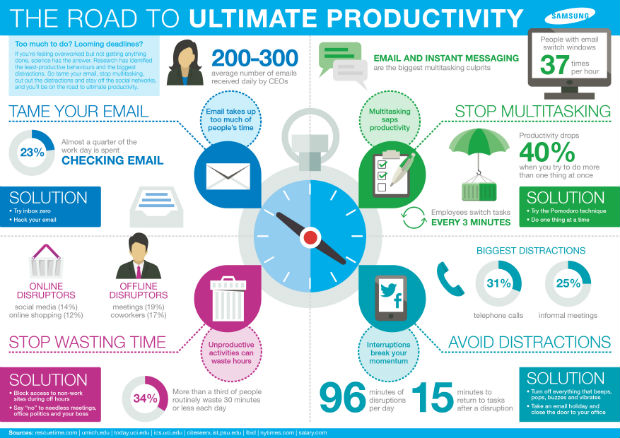
Most people assume being productive is simply following some tips or techniques that help you do more in less time. However, while that may be a start to increasing your productivity, what you would want to eventually achieve is perhaps something far greater.
The level of productivity most seem to need isn’t probably about merely following a few time-saver tips or blocking social media for a few hours, but something well beyond these things. Productivity is a ‘way of being’.
However, it also needs to be taken into consideration that productivity may mean different things to different people, and hence we can conclude that it’s something very subjective. The concept may still not change though, and it would probably always be something along the lines of what I mentioned above.
So, what does productivity mean to you? Is it simply finding the best tools out there that help you track your time better? Or is it to try doing more in less time?

Well, while it can be anything, honestly, I don’t think I should be getting into why it may or may not be ‘right’. Instead, I’ll talk about something that’s sure to help you make your approach to getting productive more effective, regardless of what it is.
In other words, I’m going to share a few things that you can apply and implement to become more productive rather than simply trying to look for those temporary productivity boosts. So without further ado, let’s get started with it.
Do Away with All Those Never-Ending Excuses
Many times, it seems that it’s our typical attitude and approach that keeps us from achieving the level of productivity we want and need in our lives. Usually, we never run out of excuses to avoid getting things done, and try to make ourselves believe that things just weren’t in our control.
While I’m not saying that those excuses may not be valid, it’s just that they may not be ‘genuine’ enough for not doing what you should have done. In other words, they may not be ‘real’, and just something that are triggered by your brain subconsciously to avoid doing the things it doesn’t want to at that particular time.

Letting procrastination get in your way every time is probably a big reason why you’re not being able to become as productive as you want to. However, you can’t expect anyone or any tool out there to help you with it. It’s you who’s going to need to fix it, and unless you act, nothing out there is going to help you.
You just need to absorb the fact that it’s about time you stop putting your comfort before results, and do it the other way round. Just do away with those typical excuses that you have been using all your life and stop getting in your own way. Once you do that, you will find that you’re in a much better position to become as productive as you want.
Just ask yourself: ‘How are you preventing yourself from achieving the level of productivity you need in your life?’
Developing a Productive Mindset
Productive individuals tend to think very differently. They have an effective way of dealing with challenges. They usually don’t get bogged down with work, but instead tend to come up with a concrete plan of how to tackle it.
With that being said, developing a productive mindset will be more about challenging your thoughts than anything else. This is not something you can do using tools or software, or even by following productivity tips or techniques.

Basically, the difference you ‘should’ notice in your thoughts after developing a productive mindset is a new, considerably more positive way of looking at problems. While someone with a productive mindset will focus on finding solutions, most others will just worry about the problem and think about how challenging it is to deal with.
You actually need to talk to yourself, and observe the thoughts your brain comes up with. Do the thoughts empower you, and make you feel more confident and inspired to get something done? Or do they make you feel more stressed and worried?
After you get your answers to these questions, you need to work on your thoughts to make them more positive, productive and powerful.
Time Management is Subjective
While most people understand that time management is pivotal when it comes to being productive, surprisingly, they usually don’t realize that it’s very subjective.

It’s very common with many to follow a few seemingly effective ways of managing their time, but eventually throw in the towel just because they didn’t work well for them. What you need to realize is that just like clothing, you need to adjust the tips and techniques to make them suit your needs. You can start by following them without any changes, but you eventually need to tweak them based on your specific needs to get the most out of them.
Weed Out the Time-Killers
Most of us have those time-killers that usually never fail to distract, interrupt, or throw us off course. Unfortunately, many don’t even know what their time thieves are, which makes it incredibly challenging for them to be more productive.
When there are activities or situations that keep distracting you every now and then, it’s almost impossible to get things done in time or increase your productivity. However, if you manage to identify these time-killers, you would be in a much better position to take matters in your hand and become more productive fairly quickly.

On the other hand, if you ignore your time-killers, and keep trying to follow tips and techniques for increasing your productivity, the effort would usually turn out to be fruitless. But even weeding out one of those time thieves would go a long way in improving the effectiveness of whatever productivity techniques you’re following.
Similarly, once you get rid of a time-killer and notice the positive change it brings about, you would feel much more motivated to take action and take on the other ones as well. This will eventually help boost your productivity better than you can imagine.
However, identifying the time thieves is the most important step. Simply think about that one change that is capable of having the biggest positive effect on your productivity. Then think about what’s causing it, and what can be an ideal solution to it.
Once you figure these things out, all you need to do is put results before comfort, and take action to get rid of the problem. Finally, remember, the people who give up at this stage are the ones who usually never manage to achieve their goals they probably otherwise could!
